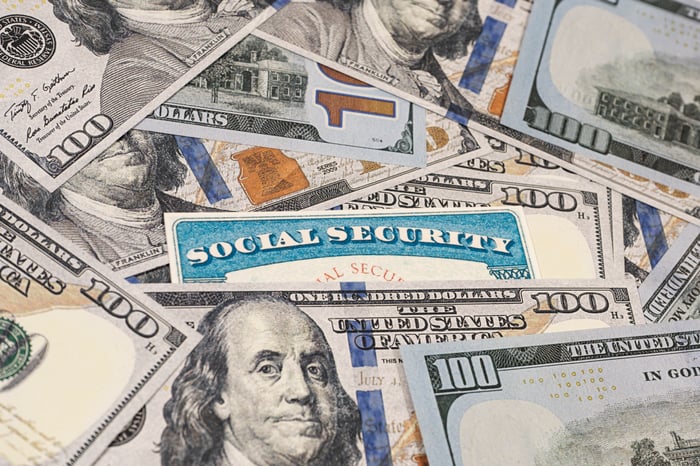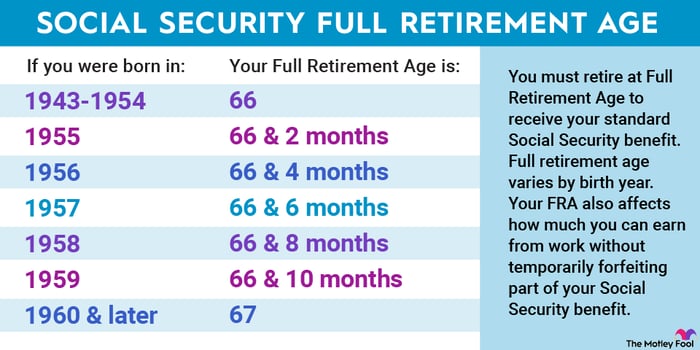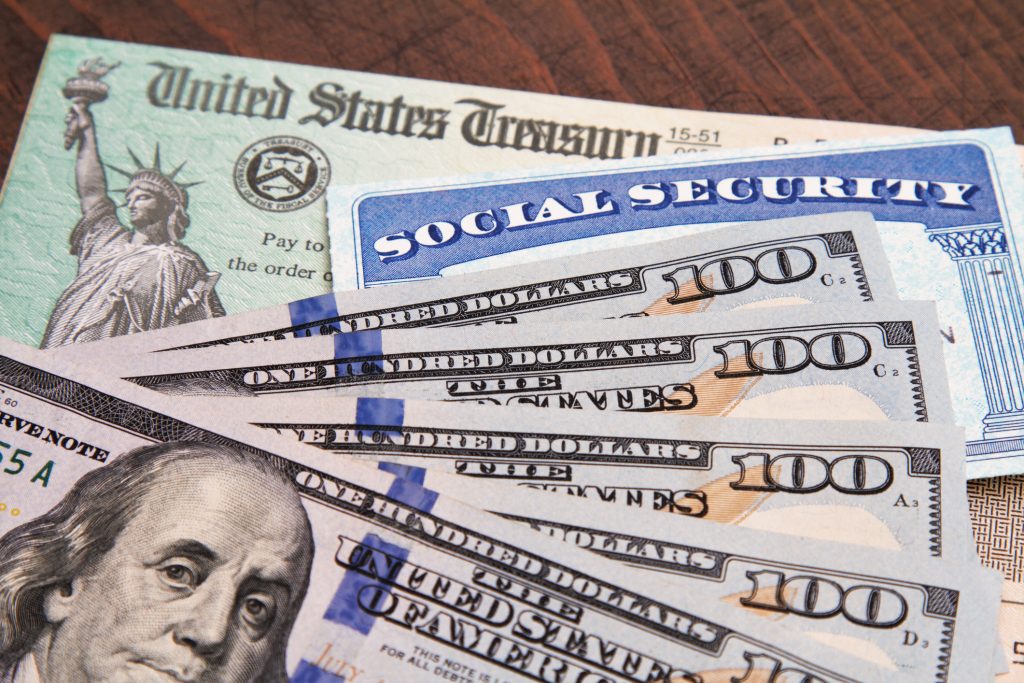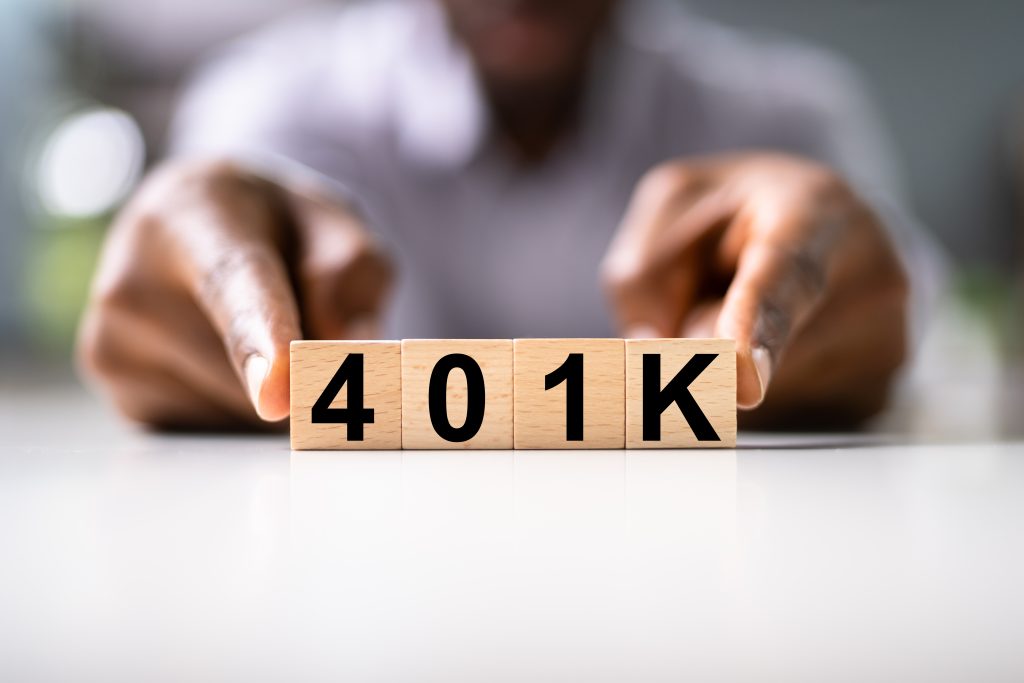Your monthly Social Security benefit is based primarily on your career earnings and when you claim benefits. The first one is pretty straightforward: The more you earn over the years, the more you pay in Social Security payroll taxes (up to a certain amount), and the larger you can expect your monthly benefit to be.
Increasing your earnings, however, is much easier said than done. On the other hand, you’re likely to have more control over the timing of your claim, and waiting until after your full retirement age (FRA) to collect Social Security will increase your monthly benefit.
Where to invest $1,000 right now? Our analyst team just revealed what they believe are the 10 best stocks to buy right now. Continue »
It’s a simple move that could increase the average retiree’s monthly payment by $1,000 or more.

Image source: Getty Images.
How delaying claiming benefits affects how much you receive
Your FRA is the age at which you qualify for your full monthly benefit, or primary insurance amount (PIA). Think of your PIA as your base benefit, and from there, the Social Security Administration adjusts what you ultimately receive based on whether you claim before or after FRA.

Image source: The Motley Fool.
Delaying benefits past your FRA increases them by 2/3 of 1% monthly, or 8% annually, relative to your PIA. These delayed retirement credits will stack up until you reach age 70.
But just as your benefit increases when claiming after FRA, it decreases if you claim before FRA. You can start collecting Social Security at 62, but doing so will reduce your monthly check by as much as 30%, again relative to your PIA.
To see this dynamic in action, let’s assume your PIA is $2,000 (the average monthly benefit for retired workers as of April was $1,997.97), and your FRA is 67. Claiming right at 62 would get you a benefit of $1,400. However, if you delay until 70, you’d be eligible to receive $2,480. So, for someone entitled to the average benefit as their PIA, waiting until 70 to claim is enough to get them more than $1,000 per month versus claiming at 62.
For someone expecting a PIA of $3,000 instead of $2,000, the monthly difference between claiming at 70 ($3,720) versus 62 ($2,100) increases to $1,620.
And you don’t have to claim at only the the extreme ends of this timeline. With the same $3,000 PIA, claiming at 69 gets you $3,480 while and claiming at 63 gets you $2,250 — a $1,230 difference.
If you want to do your own calculations, you can check your estimated benefit at different ages with your online Social Security Administration account.
Should everyone delay benefits until 70?
Although a higher monthly benefit is attractive and delaying benefits until 70 is a simple enough strategy, in theory, it’s not the right move for everyone. First and foremost, if you need Social Security to cover essential expenses, then claim as soon as necessary. Stability should be your top priority.
Even if you have other income streams (retirement accounts, pension, etc.), delaying Social Security until 70 may not be the best route if you’re in poor health. This is why I always recommend people look at their break-even age to help with their decision. Your break-even age is when the total lifetime benefits from claiming at one age equals those from claiming at another age.
If we continue with our first example and are deciding between claiming at 62 and claiming at 70 for someone collecting the average retired worker benefit, the break-even age is around 80 years and 5 months:
| Monthly Benefit | Total Received at Age 80 |
Total Received at |
Total Received at Age 81 |
|---|---|---|---|
| $1,400 (claim at 62) | $302,400 | $309,400 | $319,200 |
| $2,480 (claim at 70) | $297,600 | $309,760 | $327,360 |
Calculations by author.
In other words, for the decision to claim at age 62 versus age 70, this person only gets more in lifetime Social Security benefits if they live until at least 80-and-a-half years old. Even with an extra $1,080 per month when claiming at age 70, it takes time to make up for the years of missed benefits from waiting.
Break-even age isn’t the only factor to consider, but it’s a helpful data, in addition to things like your health, savings, and retirement goals.
The $23,760 Social Security bonus most retirees completely overlook
If you’re like most Americans, you’re a few years (or more) behind on your retirement savings. But a handful of little-known “Social Security secrets” could help ensure a boost in your retirement income.
One easy trick could pay you as much as $23,760 more… each year! Once you learn how to maximize your Social Security benefits, we think you could retire confidently with the peace of mind we’re all after. Join Stock Advisor to learn more about these strategies.
View the “Social Security secrets” »
The Motley Fool has a disclosure policy.
 benzinga.com
benzinga.com fool.com
fool.com



